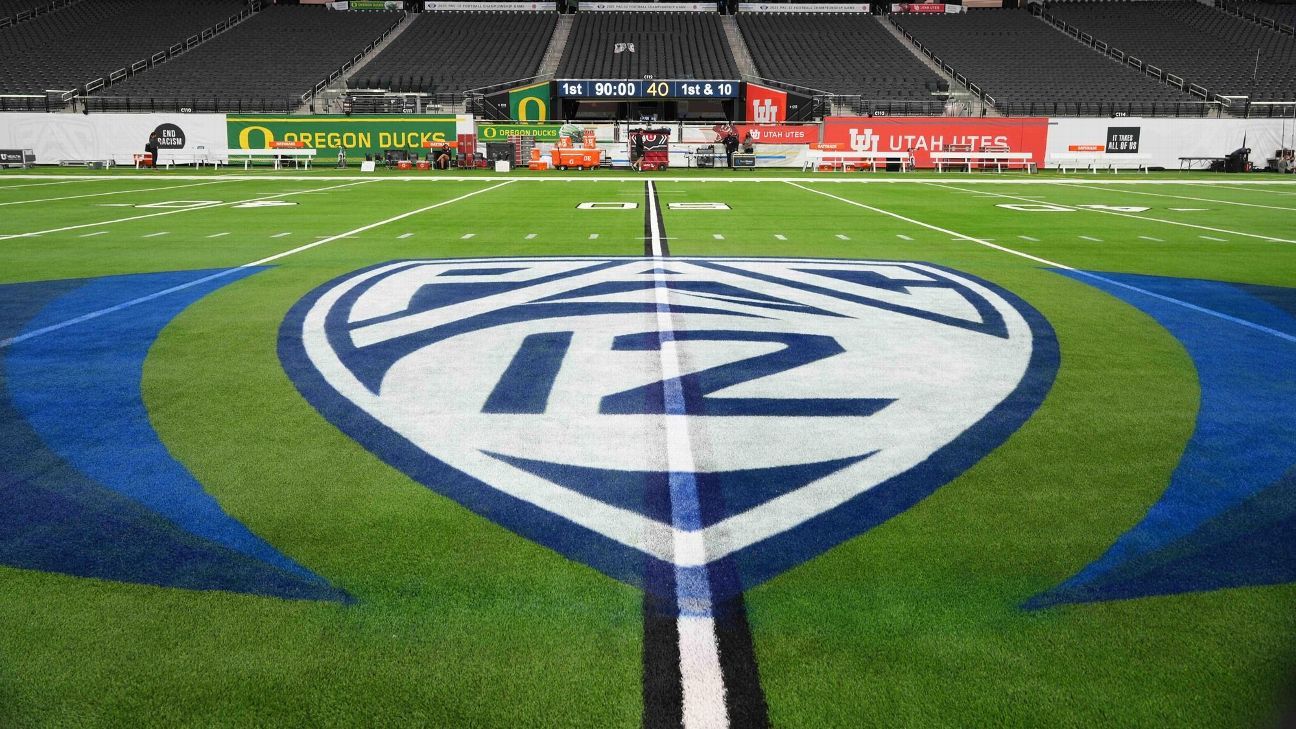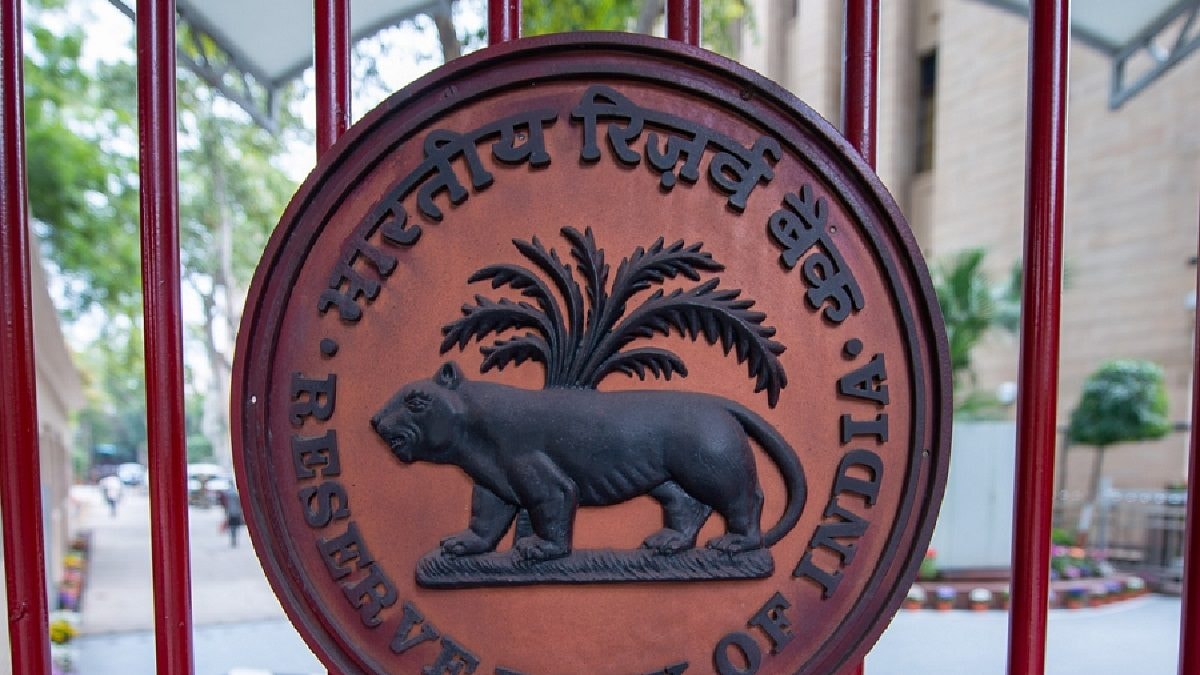 Science & Environment
Science & Environment
OSU, Wazzu filing seeks control of Pac-12’s future
Oregon State and Washington State filed a legal complaint against the Pac-12 and commissioner George Kliavkoff on Friday seeking an emergency temporary restraining order to protect what the schools see as an “imminent and existential threat” to the future of the conference.
With the intent of “exploring opportunities to sustain the Pac-12,” the schools are asking for a board meeting of all 12 members Wednesday to be canceled and for legal clarity to be given on who has voting rights to control the future of the league.
With 10 of the conference’s 12 members announcing their departures within the past 18 months, Pac-12 bylaws indicate that the presidents at Oregon State and Washington State — the only members that have not given notification of withdrawal — should constitute the league’s board of directors.
The legal filing by the two schools and its presidents was made in state court in Whitman County, Washington, which is where Washington State is located. The filings include a request for a hearing on the temporary restraining order on Monday, which could give clarity before the scheduled meeting two days later.
“Defendants’ actions have left Plaintiffs with no choice but to bring this emergency temporary restraining order to preserve the status quo until a hearing can be had on a preliminary injunction,” the filing says. “Plaintiffs are willing to schedule a prompt preliminary injunction hearing and conduct any needed discovery on an expedited basis.”
At the heart of the dispute is the distribution of the Pac-12’s remaining assets. The filing states that the Pac-12 ended the 2022 fiscal year with $42.7 million in total net assets, a figure that does not include the equity value of the conference’s ownership of the Pac-12 Network. For the 2021-22 financial year, the Pac-12 Network reported revenue of $117 million and expenses of $77 million.
There are multiple other revenue streams, such as bowl contracts and College Football Playoff payouts, and substantial payments incoming on the existing television contracts. The Pac-12 is also expecting $50.2 million in men’s basketball NCAA tournament units, which would be paid out over the next six years. The Pac-12’s name brand is also considered to have significant value.
Pac-12 general counsel Scott Petersmeyer had indicated in an email that Wednesday’s meeting, internally labeled a “Pac-12 Board Meeting,” could include a vote.
The essence of Washington State and Oregon State’s concerns, if the league’s 12 schools formally meet, is that the current members could vote to dissolve or evenly distribute the remaining assets. Washington State and Oregon State consider themselves the only board members and are seeking to survey their options moving forward. They pointed to the conference’s bylaws, which state that any notice of withdrawal from the league means a school “automatically cease(s) to be a member of the Pac-12 Board of Directors and shall cease to have the right to vote on any matter.”
The meeting was scheduled, according to the legal filings, after Washington State president Kirk Schulz, the chair of the Pac-12 board of directors, declined to call a board meeting after a telephone conversation with Kliavkoff on or around Aug. 29. Schulz feared that Kliavkoff “would allow the withdrawing universities’ former Board representatives to vote on a number of matters, even though they no longer have the right to vote on any matter,” according to the legal documents.
In a supporting document, Schulz says he needs “urgent intervention” on whether the departing schools can hold a seat on the Pac-12 board and vote.
“The Pac-12 Conference and the Pac-12 Conference Board of Directors cannot resolve this dispute through internal means,” Schulz says in the filing. “At its core, this is a dispute over who has the authority to act on behalf of the Pac-12 Conference. Only judicial intervention can resolve this dispute.”
The filing includes a comment from one departing school, which is not named: “One representative from a departing Pac-12 member stated his view just two days ago that ‘9 Members can declare the fate of the Conference at any time.'”
The Pac-12 has seen 10 members leave since last summer, starting when UCLA and USC announced they would join the Big Ten in 2024. The complaint points out that the board seats and voting rights of those schools were immediately rescinded.
In recent weeks, Colorado, Arizona, Arizona State and Utah announced they would join the Big 12; Oregon and Washington said they were heading to the Big Ten; and the ACC voted to add Stanford and Cal.
In the filing, Washington State and Oregon State are identified as the “only remaining members with a legitimate interest in the survival and success” of the Pac-12.
“Unless Defendants are enjoined from holding this meeting, the Pac-12 and the ten departing members will wrongfully seize control of the Conference in violation of the Bylaws and take steps that will cause irreparable harm to WSU and OSU,” the filing says. “Once the Conference allows the ten ineligible former Board members to participate on the Board and purport to vote on behalf of the Conference, irreparable damage to Plaintiffs will be done.
“The Conference will have breached its Bylaws; WSU’s and OSU’s rights as remaining members of the Pac-12 Conference will have been eviscerated; and the ten departing members may seek to amend the Bylaws to alter the governance structure of the Conference and take actions to protect their own self-interests to the detriment of WSU and OSU.”
The schools switching leagues have left Washington State and Oregon State without a sustainable future home. The legal filing offers some insight into the schools’ potential interest in fighting to keep the league’s name and its assets going forward. One option has always been to use the financial assets, infrastructure and strong brand of the Pac-12 as a lure to invite the 12 Mountain West schools into the league for some type of amicable merger.
The Pac-12 has not met formally since the latest wave of departures, as the last scheduled meeting was the morning of Aug. 4, when the schools were expected to vote on a potential distribution deal with Apple. That meeting never happened after Oregon and Washington informed the other members they were likely headed to the Big Ten.
Washington State and Oregon State have been frustrated by the league’s lack of transparency regarding the Pac-12’s assets and liabilities. Included in the financial ambiguity are lingering television distribution issues with Comcast that potentially put tens of millions of dollars in flux.
The complaint gives a window into what the schools don’t want to happen if there is a formal Pac-12 meeting Wednesday.
“The ten departing members have a significant financial incentive to dissolve the Pac-12 before their departures,” the complaint says. “If the Pac-12 Conference dissolved, its remaining assets and property would be distributed to all twelve members.”
The complaint comes in the wake of a letter Schulz and Oregon State president Jayathi Murthy sent to Kliavkoff and the 10 other presidents and chancellors Wednesday, which appears to have set up the legal grounds of Friday’s filing.
The letter was sent in response to the board of directors meeting being called and expressed concern that it “creates the misimpression that representatives of all Conference members are eligible to serve on the Board, participate in Board meetings, and vote on Board matters. That is incorrect.”
It asked for three things by Friday morning: a cancellation of Wednesday’s meeting, no voting rights for the 10 departing schools, and a final confirmation that the only representatives on the Pac-12 board are from Oregon State and Washington State.
The letter closes by saying: “We look forward to working with each of you, your member institutions, and the Pac-12 Conference staff on a productive path forward.”










